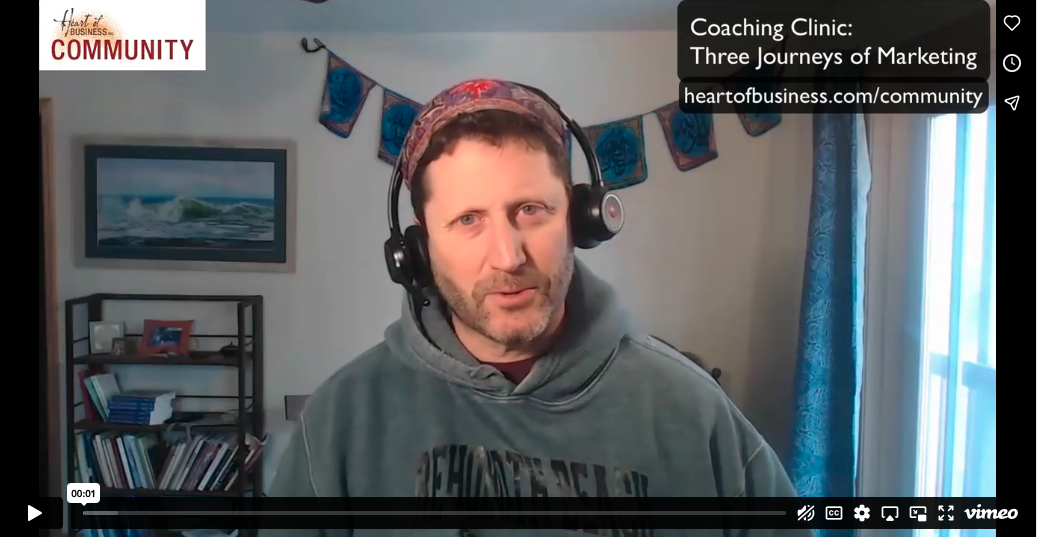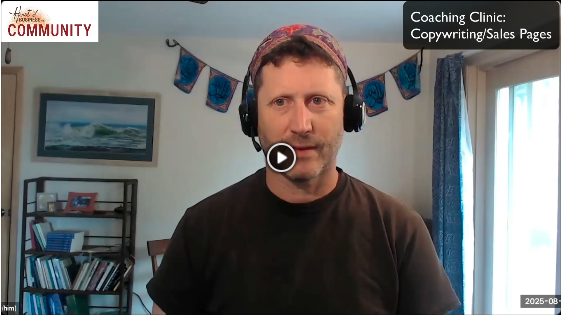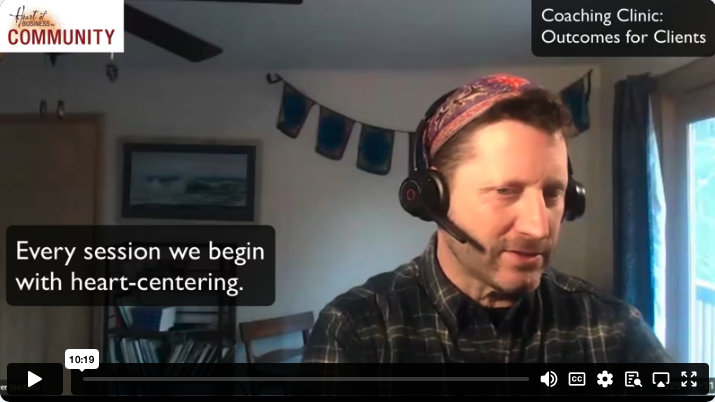Years ago I had a fantastic coach, one of the first coaches I ever worked with, back when I was also studying Sufi healing. Again and again she gently and firmly told me:
“Whenever you talk about numbers, you get all weird.”
It was true. I would start planning to make so much money, or hitting certain goals. I don’t know how to explain this exactly, but I’ll try. I would get all linear, like my spine was stretched out straight. Oddly, being in such a straight-arrow state, I would be off-course.
I’d, of course, also lose all sense of flexibility and ease and flow around what is and what could be.
In other words, planning about money and goals would make me all gitchy-wah-wah, if you know what I mean. Throw off my creative process, send the business into a very tight, very straight, very short path that just didn’t go anywhere.
And she wonderfully helped me drop that and open up.
But there was another problem. When I disconnected completely from money and goals, I would drift, aimless and disconnected. Things I offered wouldn’t land with people. I see this with clients sometimes, where they get deeply into loving what they do and lose connection with what the people they are serving actually want and need.
Listen up. Money does have a role to play in all of this.
On Your Knees
Your best work has nothing to do with getting paid. When you’re in flow, you give, and it flows, and whoosh-waba-waba, your clients and customers receive yowsa good stuff.
What a high. That feels great. Love it. But it’s only half the story.
The other half is you on your knees, needing support, help, caring, and cash. The trick is remembering that the money is attached to actual, live people.
It’s a subtle distinction. You don’t want to see people as money faucets, but you do want to respect them as people who have received money themselves and have it to give to you.
The subtle shift is in identifying the endpoint. If you’re thinking “connect-create-offer” to receive money, then money is the endpoint, and the heart will not rest there, it will want to keep moving.
However, if you’re thinking “connect-create-offer” to serve and help people, and money is part of the “connect,” that puts money in its place.
Frederick and Alberta
Frederick needs cash, and looks around and sees that suddenly many people in his field of food and health are doing a food-exercise combination program. He decides he’s going to offer a similar program that adds in meditation and with his own particular spin.
He starts dreaming about how many people will buy it, and how much money will come in. He starts thinking about this program as the $10,000 program in his mind.
Money has become the endpoint. It’s going to mess with his creative decisions.
Alberta is in the same field as Fred and needs cash, too. She sees the same programs Fred is seeing. She thinks about it and notices a few things.
- People are really responding to something about the food-exercise combination. She thinks this through.
- She sees there is a valid need for a combination program, and it’s in alignment with what she already does. She starts to figure out what that looks like and what it means for her.
- Alberta also spends some time figuring out the cash side. What it would take for her to give it, how much money would feel good to be able to be open and free in giving it to the people? How many people she could handle given her business infrastructure?
Notice that money is not the endpoint for Alberta, but merely a part of the equation. Her focus is on helping people and seeing how her gifts can do that.
Money Is Given Too Much and Not Enough Attention
Here’s the problem in our society: money is given a tremendous amount of airspace, but very little attention. And that makes sense.
When something is important, it takes up space. Yet, when we don’t pay attention to it, it starts taking up more and more space.
It’s okay that money takes up space. It’s important. Money can uncomplicate our lives in amazing ways. Having it means I don’t have to change the oil on the baker’s car, or do childcare for the farmer, or fix the fence of the person who makes my clothes.
I can just give them money, and in return I receive bread, vegetables and clothing. I have time left to work on my own fence and spend time with my own kids.
You Need to Wring Out the Sponge
Unfortunately, because money is a proxy and replaces all these goods and services, it’s become a bit of a sponge. It soaks up the needs for appreciation, witnessing and love. It slurps up issues around survival and health and shelter.
Until we can find time to care for our own needs and clear out all that extra stuff that money has sponged up, it’s going to be hard to be all open, free and easy about it. It’s going to occupy your attention.
Because there are legitimate needs within you that need attention, it’s going to be easy to see clients as money faucets and lose track of the deeper generosity, intention and love you are bringing to your work.
You just need to put a little distance between your clients and money.
Getting Distance
The first step is always acceptance for where you are. If money makes you gitchy-wah-wah, then it does. If you get money-obsessed or money-repulsed, you do. Perhaps you can find some gentleness and love here in the acceptance of what is.
Then, I like to connect with my heart and see what is rattling around in there about money. What has money sponged up inside me that is needing attention?
These two simple steps can start to give you a bit of distance. Then, get healing or support, or whatever you need to do to care for what is needing attention.
You may be noticing that money gitchy-wah-wah may come and go, but it won’t be gumming up your business, your offers, or your creativity.
I’d love to hear what comes up for you around this.







11 Responses
When I disconnected completely from money and goals, I would drift, aimless and disconnected. Things I offered wouldn
Shabang!
Hi Mark,
Just love your subtitles: On your knees? Drew me right in!
Yes, money appears to be between a rock and a hard place in our society. I think that reflects our own ambivalence about work, if you want to take it down another level.
I wonder is money the problem or is money the symptom of the underlying problem. Curious …
Thx
Giulietta
.-= Giulietta Nardone’s lastest post: I
I’m thinking money isn’t a problem or a symptom- I think our relationship to it and how it’s used can be both symptom and problem.
Money itself? Fairly innocent. 🙂
The sponge metaphor really makes sense to me. When I think about it, there is so much encapsulated in the way I deal with money. My values, the way I treat myself and others, and even the way I was raised. This will be a great tool as I continue to work on offering my services and charging for them. Thank you, Mark.
.-= Kylie’s lastest post: you
Sweet! Nothing like a sponge to bring out the best in all of us… er…
We do wrap so much into the energy of money. I recently started doing much more gratitude work around the money I was receiving. Poof! More money started to arrive. I was giving up the craziness of what I didn’t have and was grateful for what I did have and what was coming in. Made all the difference in the world.
Nice. Glad you were able to open to what was there. Sweetness.
Gitchy-Wah-Wah is my new favourite phrase! It just sums it up perfectly 🙂
I love what you bring in about money making things less complicated. There’s a perspective I haven’t heard before – and I like it.
Thanks, as ever, you marvellous man.
Corrina
.-= Corrina Gordon-Barnes’s lastest post: I Feel Too Cluttered To Declutter! =-.
Hi Mark,
I signed up for the home study version of the Heart of Money Transformational Journey, as my June and July editing schedule (I’m a book editor and book coach) conflicts with the timing of many of the live calls. So I figured the home study version would work best for me. I’m really looking forward to getting started.
You are so right that for many creative people, getting into a right relationship with money is very difficult. Cleaning out the money cobwebs is major inner work, and cannot be done alone. Your course is filling a great need for many people.
Thank you!
Dear Sharon- thanks for joining in, and I’m glad you’re doing it in a way that really works for you.
And yes, the money cobwebs is major inner work. I trust you’ve got some supportive people in your life as you go through it.